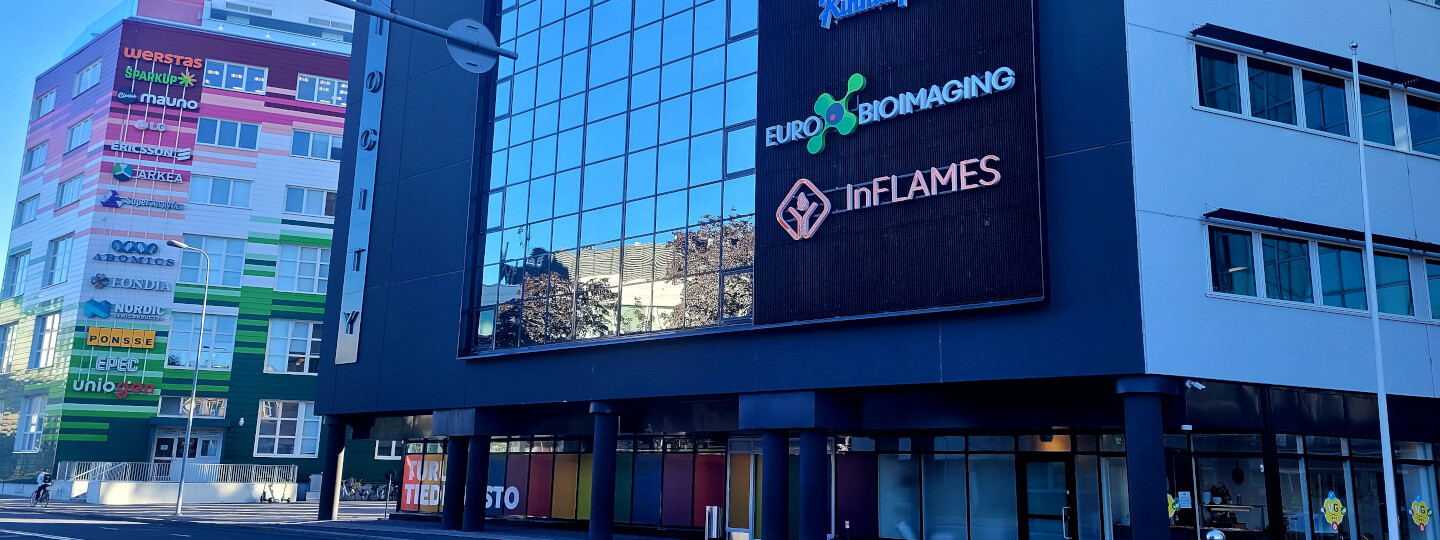How can a researcher become an entrepreneur, what does the journey require and why should more researchers aim to commercialise their invention? The Corporate Corner event of the InFLAMES Flagship shares stories of how science can become business, told by interesting speakers and companies. The theme for the next Corporate Corner is The Journey of Turning Science into Business, and it will be held on 6 October in Turku.
Sirpa Jalkanen, academician and director of the InFLAMES Flagship, explains the theme for the Corporate Corner by referring to the number 1,500.
“The value of the global pharmaceuticals market is USD 1,500 billion a year, and the pharmaceutical sector is one of the largest industries in the world. However, Finland’s share of the market is less impressive. For example, Denmark sells 10 times more pharmaceuticals than Finland,” Jalkanen says.
What makes the situation disturbing is that Finnish medical research is world-class, whether we are talking about preclinical, translational or clinical research. So the foundation is strong, but we have to ask why our laboratories don’t produce new products regularly.
“InFLAMES wants to change this. In my opinion, it all comes down to attitude. We are blind to our own discoveries, and we need to learn to see research with new eyes."
Jalkanen says that Corporate Corner, a forum where researchers and business representatives meet, creates a shared language between academia and the business world, which often seems to be lacking.
“Our event features ‘warriors’ from industry as speakers, people who have started to develop their inventions for industrial production. I am sure that it has been difficult at times, but they show everyone that it is not impossible. They can tell others what not to do and what is worth doing,” Jalkanen says.
Courage and doing things ourselves
InFLAMES Corporate Corner is part of the 80th anniversary programme of the Faculty of Medicine at the University of Turku. One of the speakers is Pekka Hänninen, Dean of the Faculty of Medicine. He will talk about courage and Finnish modesty. It is time we let go of the latter if we want to turn science into business.
“We have too little courage. People tend to choose the safe and familiar path instead of trying out business,” Hänninen says. He thinks that the only way to develop one’s ideas and achieve good results is by putting oneself on the line. Hänninen does not believe in a model where the invention is handed over into someone else’s hands and hoping for the best.
As a tool to overcome unnecessary modesty, Hänninen recommends finding role models to look to. It would be best if the researcher gained some experience in the business world already at the dissertation stage. And when it comes to co-operation between companies and academia, both could relax a bit: companies could be less worried about their operating models being revealed and universities could be more flexible with the details of agreements.
Pekka Hänninen points out that in some cultures researchers think about starting their own business right away, while in others they think about it late, if at all. Finland belongs to the latter group. However, this was not the case with Milla Koistinaho, Partner at the Innovestor Life Science fund. In Corporate Corner, she will share her journey from a neurobiology researcher to an entrepreneur who commercialises scientific inventions and makes investments in the field.
“Even in the dissertation and postdoc phase, it was clear to me that while I love research, I would not do it simply for the joy of it. I wanted to bring the fruits of research, the discoveries and breakthroughs, closer to people,” Koistinaho says.
She came to the conclusion that with these goals she could not stay at the university, as she did not see ways of promoting the utilisation of inventions there. The young researcher understood that enterprises and commercial incentives are needed for putting research into use.
Funding is improving
Nowadays, as an investor, Milla Koistinaho would encourage researchers to find out the current status of invention funding. Contacting the technology transfer unit of one’s university before publication can be a good starting point for the commercialisation journey.
“The pessimism among Finnish researchers has been well-founded, as we have not had competent funders in life sciences for 10–15 years, and it has been easy to think that there is no-one who can promote inventions. However, things have changed and the funding situation is improving. For example, at Innovestor, we now have a EUR 90 million fund that focuses on life sciences. We specifically fund university research projects that are in their early stages.”
Koistinaho does not claim that EUR 90 million will change the entire financial landscape once and for all, but there are reasons to expect that Innovestor will also make international funders interested in Finland. First, however, there is a fundamental flaw that needs to be addressed. It is evident, for example, in the invention notifications submitted by top medical scientists. There are simply too few of them.
“We don’t really offer researchers incentives for anything other than research, teaching and training other researchers, so there is something wrong with the system,” Koistinaho sums up.
The InFLAMES Flagship’s Corporate Corner is the sixth event of its kind, and it will be held at the Old Academy Building in Turku on 6 October, starting at 11:30 a.m.
InFLAMES Flagship is a joint initiative of University of Turku and Åbo Akademi University, Finland. The goal of the Flagship is to integrate the immunological and immunology-related research activities to develop and exploit new diagnostic and therapeutic tools for personalised medicine. InFLAMES is part of Research Council of Finland´s Flagship Programme.
